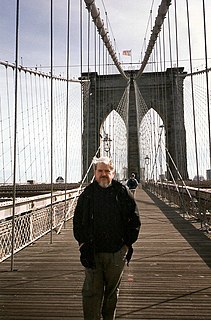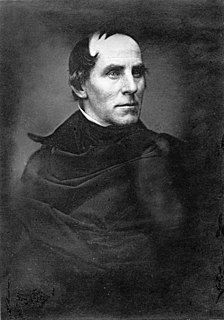A Quote by William Irwin Thompson
The conscious purpose of science is control of Nature; its unconscious effect is disruption and chaos.
Quote Topics
Related Quotes
Meditation gives you two things: equanimity and creativity. And it does that by taking one from their conscious mind, where there's all that noise and chaos and so on, into the subconscious mind where there's quiet and where creativity emanates from. You have a mantra, and when you repeat it over and over again, all those thoughts go away because you shift them to that mantra. And then eventually that sound disappears, and then you're left not conscious or unconscious - you're left in this subconscious state, and by opening that up, first of all you get control of it.
No one yet understands the mysterious intelligence within plants or the implications of the idea that nature communicates in a basic chemical language that is unconscious but profound. We do not yet understand how hallucinogens transform the message in the unconscious into revelations beheld by the conscious mind.
I use [Heraclitus' discovery of] enantiodromia for the emergence of the unconscious opposite in the course of time. This characteristic phenomenon practically always occurs when an extreme, onesided tendency dominates conscious life; in time an equally powerful counterposition is built up, which first inhibits the conscious performance and subsequently breaks through the conscious control.
Music may appeal to crude and coarse feelings or to refined and noble ones; and in so far as it does the latter it awakens the higher nature and works an effect, though but a transitory effect, of a beneficial kind. But the primary purpose of music is neither instruction nor culture but pleasure; and this is an all-sufficient purpose.
Big ideas come from the unconscious. This is true in art, in science, and in advertising. But your unconscious has to be well informed, or your idea will be irrelevant. Stuff your conscious mind with information, then unhook your rational thought process. You can help this process by going for a long walk, or taking a hot bath, or drinking half a pint of claret. Suddenly, if the telephone line from your unconscious is open, a big idea wells up within you.
Science spotlights three dimensions of nature that point to God. The first is the fact that nature obeys laws. The second is the dimension of life, of intelligently organized and purpose-driven beings, which arose from matter. The third is the very existence of nature. But it is not science alone that has guided me. I have also been helped by a renewed study of the classical philosophical arguments.





































